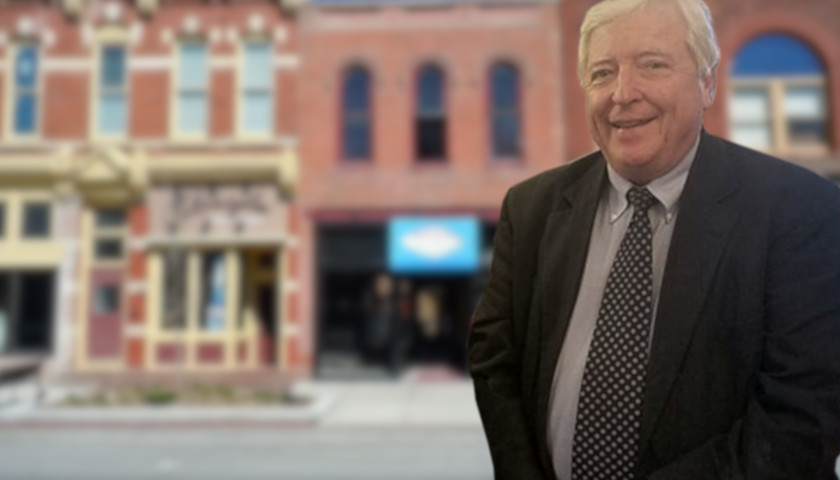On Friday’s Tennessee Star Report with Steve Gill and Michael Patrick Leahy – broadcast on Nashville’s Talk Radio 98.3 and 1510 WLAC weekdays from 5:00 am to 8:00 am – the Star Team chatted with Iowa attorney, Jim Larew about his thoughts of who will run as a 2020 Democratic presidential candidate.
Larew served as general counsel for former Iowa Governor Chet Culver, a Democrat, from 2007 to 2011, and simultaneously as chief of staff from 2010 to 2011.
At the conclusion of the show, Larew offered a very interesting psychological interpretation as it pertains to who will break out from the pack, breaking the process down to that of “celebrity status” within the party.
Leahy: You know, Elizabeth Warren is in Iowa and we have a good friend from many years ago, a leading attorney in Iowa, a Democrat, Jim Larew on the line with us. Jim, welcome to the Tennessee Star Report!
Larew: Well, thank you it’s been a long time, nice to hear from you.
Leahy: It’s been a long time. We went to college together. We were roommates in Washington, D.C. one summer when you were working for Senator John Culver (D-IA).
Larew: That’s right. You may know, that we just lost John. He died last week with just a fantastic and wonderful life…
Leahy: Well, I’m sorry to hear that. So we’ve taken divergeni paths. I’ve become very conservative Tea Party and I think you’ve become more of an activist, continued to be a Democrat in the past decades. Elizabeth Warren is visiting Iowa, today, she’s going to be in Council Bluffs. What’s your take on the Democratic field and how Iowa looks at that field here in 2020 Jim?
Larew: Well it’s, apparently interesting we enjoy the privilege, and I think we’re aware of the privilege, and take seriously the privilege of being first in the nation. We know that there’s a certain winnowing process that happens here in the field and in each caucus season. And so activist Democrats are pretty earnest about it. They look at things carefully and try to give everybody a chance and participate at fairly high rates. So we’re excited about it and sure and I think Elizabeth Warren will get a lot of careful enthusiastic scrutiny but others will too. My guess is the field won’t be completely settled until long into the process.
Leahy: Now have you been courted by the various presidential candidates? Because you’re very well known in Iowa. I remember…
Larew: Yeah but…
Leahy: You’ve worked all across the state as an organizer many years ago.
“Well I’m not a big deal in Iowa but I do pay attention,” chuckled Larew. Larew noted that Iowa was more of a purple state and a politically level field. He stressed that there were “no king makers here” and that candidates in both parties have to struggle for a vote. He went on to note that he thought this was actually a good thing but that once a political figure ends a career it’s over. Larew finished his thought reflecting upon when Jimmy Carter came to Iowa in 1976 and how he had delayed going back to college to help him out and reminisced that candidates would come stay at your house but you weren’t quite sure you would vote for them. “It’s a tough crowd”, said Larew.
Gill: Jim, Steve Gill here. And you cited exactly what I’ve seen in New Hampshire over the years where you know again, people will say exactly what you said: “Well they only stayed at my house three or four times. I’m not sure I know them well enough to give them my vote.” And the rest of the country they only see these people on television. It is hand to hand combat in Iowa and New Hampshire. It is these caucus processes where it puts a premiere on organization and on that personal touch. As you kind of look at the twenty or thirty Democrats that are talking about running right now. Who do you see as people that will fare best in that process in Iowa?
Larew: You know, I don’t know. And I think both parties, we saw that happen the last time with the Republicans. This is not the, although I’m not a great supporter of the current President’s policies. I would analyze his success less ideologically and more on a certain factor that could effect the Democrats but, I think when you had those years, when we had say three or four candidates campaigning for either parties nomination, you have a greater likelihood of a serious issue discussion that accompanies the campaigning. So it’s some combination of personality, who is the candidate. Do we like him or her. Then it gets down, in the course of the campaign to a serious discussion of issues.
Larew ended the conversation with an interesting psychological interpretation regarding the collective mind and how many variables one person’s mind can absorb in relation to any candidate predictions. He goes on to state that he believes there will be a lot of candidates, either six or seven and that the candidates could “flip” from serious discussions on issues to entering the realm of “celebrity.” He discerned that that is when a person can break from the field based on this idea of “celebrity”.
“And if you’re talking just that way, you can sort of name people who have that right now in the party. Joe Biden is very popular, but I don’t know whether he is going to run”, said Larew.
Listen to the full segment:
– – –
Tune in weekdays from 5:00 – 8:00 am to the Tennessee Star Report with Steve Gill and Michael Patrick Leahy on Talk Radio 98.3 FM WLAC 1510. Listen online at iHeart Radio.





